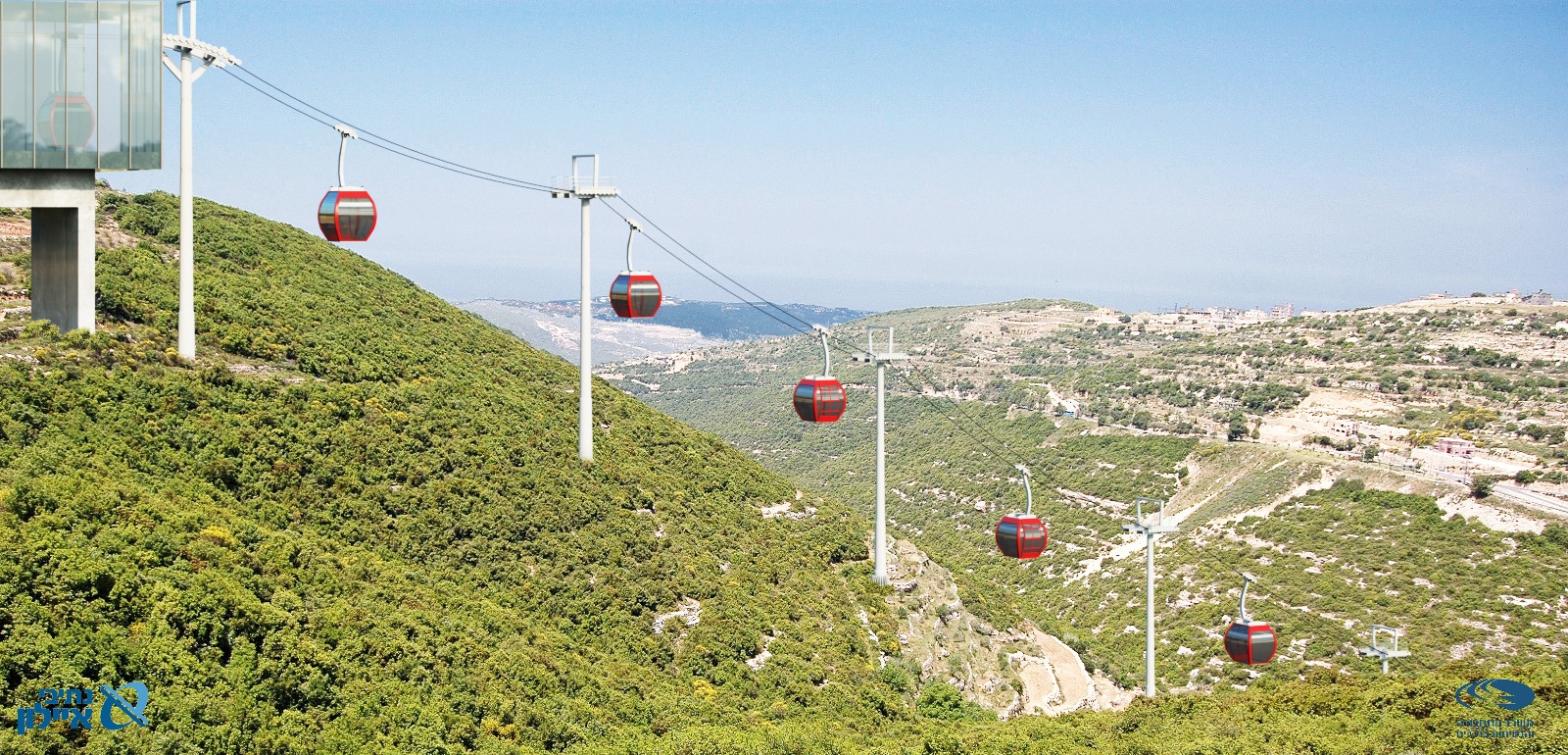«- Damn and blast! What is that? — exclaimed Kingskurt pointing at the carriage flying above the tops of the palm trees, passengers looking out of its windows. Its wheels were not below but on top of it, above the roof. It was hanging in the air and running by the rails mounted in the tall bridge.
David Litvak replied:
— It’s an electric cable railway. You might have seen it in Europe.»
Theodor Herzl. A utopian novel «Altneuland» («The Old New Land»)

A cable railway will bring students to the University and believers to righteous men’s tombs. In Haifa it will not be a touristic attraction, but a part of the city’s public transport, linking the northern districts with the University campus and Technion. Dozens of thousands of students, professors and researchers will be able to reach the universities by air avoiding traffic jams and being late.
The famous cable railway appeared in Haifa 28 years ago. In 1986 round cabins started flying above the city from the sea shore at Bat-Galim up to the Carmelites’ Stella Maris Monastery at the Mount Carmel. The length of the route is 355 meters, its height is 130 meters. Local citizens were rather skeptical about this kind of «transport» and jokingly called it «mayor’s eggs» or «Gurel’s eggs». At that time Arie Gurel was the mayor of Haifa. This nickname has survived till nowadays.
However today in the Ministry of transportation they are not going to joke and believe that a new system of cable railways will significantly facilitate the work of scheduled buses, trains and shared taxis. A tender has been announced for building six stations. The opening will be in three years.
— A cable railway is the most efficient and safe kind of transportation, — declared the Israeli Transport Minister Israel Kaz, — it will reduce traveling time and people will no longer need to use private transport in rush hour.
Modern cable railways and funiculars will become a rescue not only in Haifa, but also in other mountainous regions of the country where there are considerable elevation changes, dangerous serpentinous roads and complicated junctions. In a few years the cable railway will be able to transport pilgrims and local citizens to the Mount Meron, where the tomb of the rabbi Simeon bar Yochai (Rashbi) is located. Mount Meron is a place of massive pilgrimage and it is widely popular both among Israelis and tourists. This route will pass on the height of 500 meters, with its length being around 7 km. The cabins designed for 10-12 passengers will transport up to 2400 people in rush hour. It will be possible to pay with «Rav-kav» plastic card, which all the Israelis use when using public transport.
 Сarmel Magazine: культура и искусство без границы Мировые премьеры, шоу, биеннале. События культуры, о которых говорит весь мир. Бронирование и заказ билетов, VIP-туры на главные события культурной жизни по всему миру
Сarmel Magazine: культура и искусство без границы Мировые премьеры, шоу, биеннале. События культуры, о которых говорит весь мир. Бронирование и заказ билетов, VIP-туры на главные события культурной жизни по всему миру



